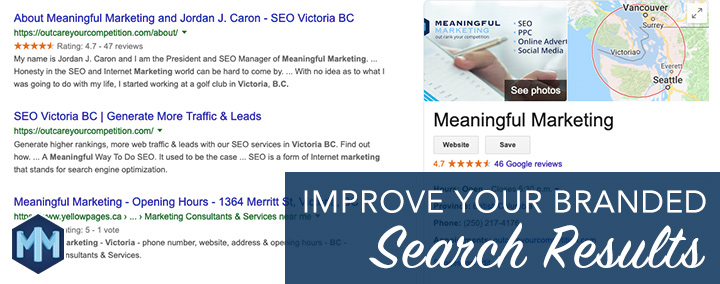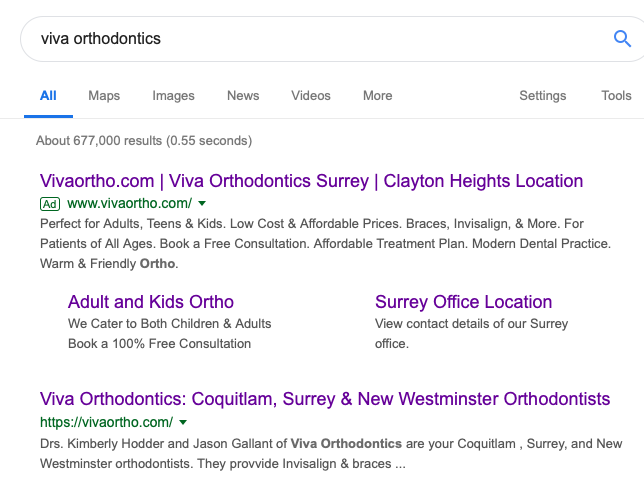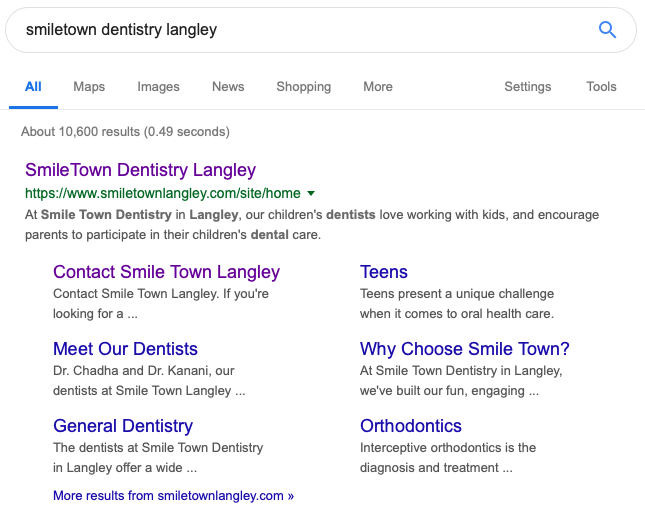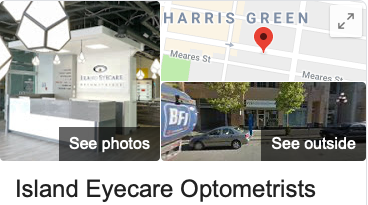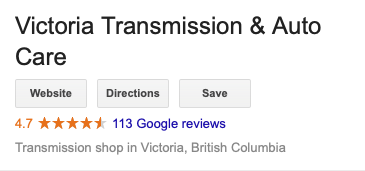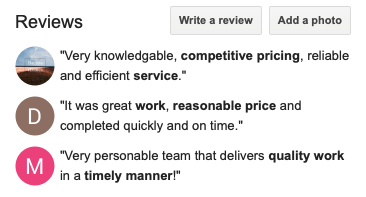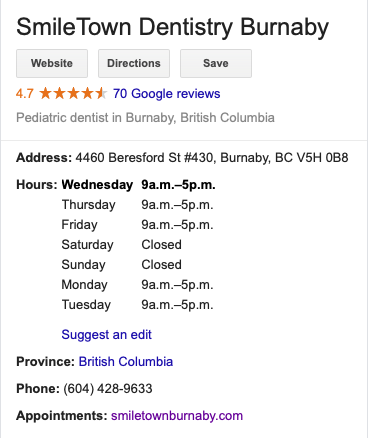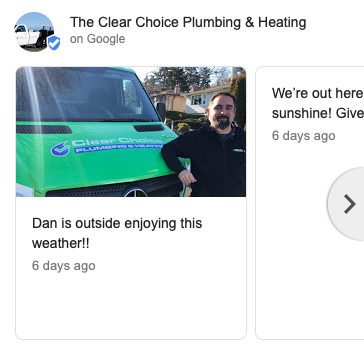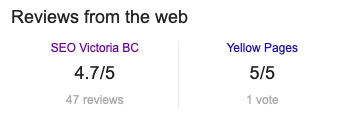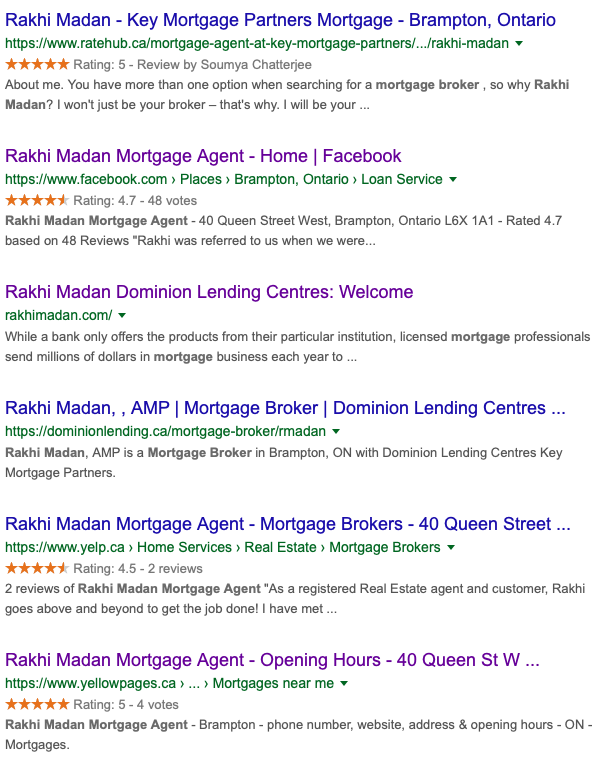by Jordan J. Caron | on May 15th, 2019

Running an SEO audit is a standard procedure for any website, and it’s a great way to get better insight on your website as a whole, the individual pages, and your overall traffic. But you can only get these insights and performance enhancements if your audit is done properly. While there are many articles out there on how to perform the “best” local SEO audit, trying to include all of the suggestions leads to disorganized and hard-to-interpret audit results. These kind of results aren’t what you need to improve your website ranking and performance.
Your best option when running a local SEO audit is to keep is simple. Stick to the basics first, and get fancy later. It’s the basics that will give you meaningful action items and actual tangible ways to improve your website. Below I’ve listed out the 10 sections that I suggest always including in a local SEO audit (give or take a few, depending on the business):

Overall Comments
This should be about a half page of any commentary that is not an action item. Write any comments that you have, and include a section of “quick wins” (eg. a list of 5 small changes that can be made to have a relatively large impact).
Reviews
List out the top 5-10 review sites that will matter to the business (this may vary depending on location, business size, business focus, etc.). Be sure to also include suggestions on where and how to get more reviews in a prioritized order.
Google My Business
In this section, give any and all recommendations on the business’ Google My Business page(s). You should include things such as suggestions for features that you think should be used, and identify duplicate Google My Business pages. Our article on how to rank a Google My Business page is a good start as well.
Citations
This is where you should include any comments on the citation audit (this audit will most likely be separate from the main write-up). Getting business listings/citations is important for ranking in the Google My Business results. You’ll want to make sure the business information is correct in all citations.
Anti-Spam
Find and take note of specific competitors who are spamming the local map in this section. Be sure to explain what they are doing and how their spam can be monitored and reported.
Link Opportunities
It’s a good idea to do some research into specific link opportunities that you can include in your audit. These opportunities will be different for each business, so try to keep them realistic in your audit!
Website (Technical)
This is where you should write any suggestions on technical aspects of the website such as internal linking, title tags, overall structure, page speed, and other aspects. This section goes hand in hand with the next three sections below.
Homepage
The homepage is where a lot of things happen, so that’s why it should get its own section of the audit. There are usually plenty of ways to tweak a homepage, and all of those suggestions should be included here.
All Other Pages
If you have recommendations on any other existing pages besides the homepage, write them in this section. These could be pages such as “Services”, “About”, or “Contact Us”. Also take a look at items such as whether or not the website has blog posts that may work better as pages.
New Pages
There are always more pages that can be added! This section is where you should recommend any specific ideas you have for new pages.
Including these sections in your local SEO audit will give you a solid audit with actionable items to make your website better. While there are plenty of other sections to add, I always recommend sticking with the basics in order to see results.
I’m happy to help you run your local SEO audit and get your website the views it deserves. Learn more about my local SEO consulting fees.
by Jordan J. Caron | on April 3rd, 2019

As more and more of your potential customers view your business on Google, fewer and fewer of them actually click on your website. How can this be?
A Moz study from 2017 shows that 34% of Google searches result in absolutely no clicks, and this means that customers are viewing your business info directly on Google rather than on your website or social media page. This is why it’s important to improve your branded search results.
Think about it: your clients can Google your business, contact you or find directions to your address directly from the search results. That is if you have a Google My Business page properly optimized.
When they can do all of this, many of them will not visit your website. So what does this mean for you?
This means that Google needs to become your new home page, and this includes extending your brand to your search results. When your potential customers Google your business, what do they see? Does this result reflect your company’s brand in every way that it could?
Your branded search result is the page where Google sums up everything it knows about your business, and this is where your potential customers will get their information. Since word of mouth is such a huge driver for business, Google takes part in this by providing customer reviews attached to your branded search results alongside your company info. Let’s talk about how to improve this branded search result and leverage all of the elements that Google offers.
Leverage Google Brand Search Results
You may be wondering how much control you actually have. After all, Google owns the search result and not you. In reality, you have much more control than you think, and with a little bit of planning in addition to your already successful business, you can create a great narrative about your business right on Google’s page.
Start with consistency. No matter what variation of search your potential customer types or where they look on the screen, your brand should be clearly and consistently visible. If your branded search result appears different depending on which variation of your business name is searched or where it appears (in the knowledge panel, the local content, ads, etc.), this looks unprofessional and untidy. Google deep down needs consistent information about your business. That means your business name, address and phone number better be consistent to your website and all over the web.
Below are the desktop components that you have the ability to control and make consistent:
- Ads
- Your Website Organic Results
- Knowledge Panel Images
- Google Reviews
- GMB information
- Google Posts
- Sites that also show in the Reviews from the Web
- Organic Review sites
- The Wild Card – Future Knowledge Panel Features
While I am focusing on desktop searches here, it is important to focus the same attention on mobile as well. Failing to do so will cause you to miss out on many potential customers who search your business using their cell phone!
Google Ads
A few years ago I wrote about how Google could be poaching money from your business by displaying your ad for a branded search result. I was silly in thinking this. Why?
I realized it’s actually helpful so that COMPETITORS don’t poach current or potential clients when someone searches for your brand. Also, Google gives you a low cost per click for branded keywords. We’ve implemented for a few clients recently and the average costs run from $.50 – $1.50 per click.

It’s well worth it to have a branded adgroup. This alone won’t fully protect your brand from competitors, but it is a great start to build a consistent branded search result.
Your Website Organic Results
This is one of the areas of the page where you get to control both the social proof and the messaging. You will see these results high on the page (possibly first if there are no ads) and it is definitely the first thing your potential customers will see about your brand. Alongside well thought out titles and meta-tags, you will want your customer’s social proof to show on your most critical product and service pages. Google has full control over the pages they show below your homepage but they will decide what’s important for the searcher.

It should also be noted that Google will almost always recreate your homepage title to your brand name for branded searches. The above example is what Google recreates the homepage title to and the below screenshot is what Google shows for a keyword search of “pediatric dentist Langley”.

I mention this so you don’t get bogged down with deciding about putting your brand name at the end of your homepage title when it’s optimized for keywords.
Knowledge Panel Images
After viewing your branded search result, the viewer will most likely move to the Google My Business section to learn more about your business. Your Google My Business profile image is key as it gives a first impression of your business. Try using a good quality, closely cropped image that is compelling and appealing. Local customers do not want to see your logo, they want to see you and your products! Besides your profile picture, every other picture should be equally compelling. You never know if a customer will go through your entire gallery, or Google may choose a different photo to highlight.

Google Reviews
Just under your photos you will find your Google review summary. When it comes to Google reviews, don’t give up! Keeping a sustained effort that gains 1-2 reviews a month can build a strong online foundation for your business, and it can bring you a step above competitors.

Never underestimate the power of a Google review, and especially the snippets that the Google algorithm picks out to reflect your business. And don’t sweat the negative reviews, they will eventually be pushed to the bottom of the page if you keep up your efforts.

GMB information
Did you know that posting your business hours could increases your requests for driving directions by 13% and the clicks to your website by 42%? Add as much as your business information as you can, this includes adding a link to your service pages or your menu. Google recently also added the ability for professionals to upload an appointment link (one more place for your client to click through to your website).

Google Posts
There are three things that will help you make use of the new Google post feature: a great photo, a a short but compelling introduction to your business, and a call to action. While Google allows posts to be 300 characters long, only the first 100 characters will show in the knowledge panel so you need to make them count. Since this is still a relatively new feature users are still getting used to it, but hopefully the feedback is positive as it provides another way to showcase your business on Google.

Sites that also show in the Reviews from the Web
If you haven’t enabled Google Posts, “Reviews from the web” will show up right below your address info. This section has the space for up to three review sites, and it is very important that you get three review sites to show up there. Right away, add your own site and Facebook to your plan as Google will show both of these sites. You can include your own website by creating a consumer facing feedback program and posting the content in rich snippets right on your website. Don’t bother trying to get Yelp or TripAdvisor to show up here, Google will not add either site to this section. Some sites you could try are YellowPages and Facebook. You should view your review strategy over a 3-4 year timeline, so there is no rush to get reviews right away. Choose a few review sites to work on and go from there.

Organic Review sites
Once the user is done with the knowledge panel, their eyes will wander back to the organic search results for your business. This means that if well known sites such as Yelp or BBB show up, they will attract the user’s attention. With the exception of Yelp, BBB, and Tripadvisor, these sites also inform the “Reviews from the web” section in your knowledge panel, so if they did not see the info there, hopefully this is their chance to view it.

The Wild Card – Future Knowledge Panel Features
It’s always a good idea to keep an eye out for the next features that Google will be releasing on the knowledge panel because this helps you stay on top of your branded search results. Google is constantly changing and because of this you should continuously check your search results to see how the changes affect them. New features are being added and changed so fast that this article will probably be slightly outdated by the time I finish it – but it’s a good place to start if the concept of branded search results is new for you.
That was a lot of info, but it is all key to improving your branded search results and getting more potential customers looking at your business. Try some of these tricks out for yourself and see the results.
Contact us today if you are looking to improve your SEO rankings or Google Ads campaigns.
by Jordan J. Caron | on October 16th, 2018

Google reviews are a key way for clients to learn about your services and hear about other customer experiences first hand. You may have been looking at your business’ Google reviews recently and wondering ‘how can I get more reviews?’. If you have been wondering about getting more positive Google reviews for your business, let this blog be a word of warning: do not use a contest to get more reviews! Let me tell you why.
While contests can be a great way to foster excitement and attention for your business, you need to be very careful with what action you are asking your customers to take. On social media, feel free to ask them to like, share and comment in return for a prize. You can even ask your clients to share their favourite thing about your business, tag you in a photo, or use your unique hashtag. But do not use incentives or prizes to foster client reviews. Just don’t.
Recently, a law firm in the United States did just this. They hosted multiple contests and giveaways that asked clients to author a Google review in return for entries into the contest. Before it was found out that the firm was using incentives to get more reviews, they had around 100 Google reviews. And now? Just one review. That’s right, because the firm was found to be giving away zoo passes in return for writing a Google review, the majority of their existing reviews were removed by Google. The firm’s Facebook page also has a high number of reviews (around 1000 5-star reviews), most of which probably also come from incentive programs.
While Facebook doesn’t seem to have strict guidelines about this type of activity, Google certainly does. They currently have written guidelines stating that businesses should not use reviews for advertising, should not include promotional or commercial content in reviews, should not offer or accept money for reviews, and should not solicit reviews from clients in bulk. It seems as though Google takes these guidelines very seriously as they were recently revised, so be sure to adhere to them.
While it isn’t clear whether businesses are allowed to offer contests or prizes directed at an individual rather than a group also violates these guidelines, it is still wise to be careful. In the case of the US firm, Google felt that this situation represented bulk solicitation of reviews. Because of this, the reviews were removed.
The firm never claimed whether they were trying to maliciously trick the system, or simply making an honest marketing mistake, but either way their actions were penalized. This is a great opportunity for you to learn from their mistakes – but don’t let this scare you too much. While you most certainly should not use incentives to get reviews, don’t be shy in asking individual clients to review your business (just do not do so in bulk).
I know that it seems as if Google has the strictest regulation on running contest for reviews, but think twice before trying to do this on other sites such as Yelp. Believe it or not, Yelp has even stricter rules and will send consumer alerts to users who are viewing a business that has violated policy. This can seriously damage trust between your clients and your business – so again, just don’t do it!
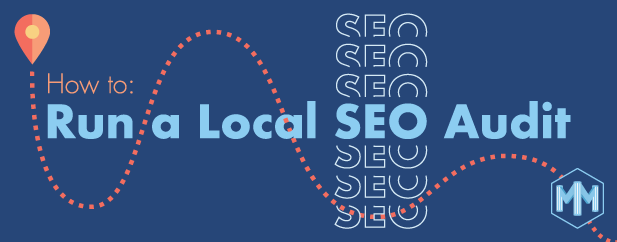
![]()

